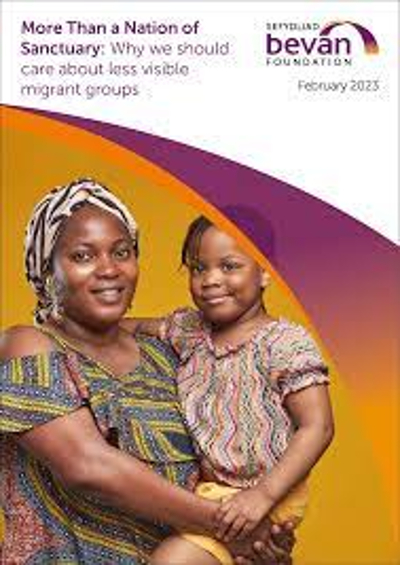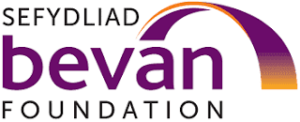The Bevan Foundation, Wales’s most influential think tank, has highlighted that not enough is being done in Wales to support people on low incomes who are living, working, and studying in Wales on temporary visas. They called for action from local authorities, Welsh Government, and the third sector.
The report, ‘What Am I Supposed to Do?: Living with No Recourse to Public Funds in the Nation of Sanctuary’, emerges from a six-month study aimed to improve access to vital services for people subject to the NRPF condition in Wales.
No recourse to public funds (NRPF) is a condition attached to most people in the UK who do not have settled status. It restricts access to many of the mainstream benefits that others can access in times of financial hardship. The NRPF condition places people and families in a precarious position, at risk of falling into destitution.
The core message of the report is that more needs to be done in Wales to support people with no recourse to public funds and to prevent destitution. Help at key stages can enable people to overcome temporary difficulties and financially support themselves. The research found that local authority planning, policies, and training are inadequate, and that too little is known about the rules that prevent people and families and families from accessing welfare support. This risks the needs of adults and children affected by NRPF, going unmet. Some key findings of the report are that:
- Children from low-income households are being denied access to free school meals, purely because of their parent’s immigration status.
- Only 32 per cent of local authorities provide or commission training on NRPF for staff.
- Support for people with NRPF across Wales is patchy and inconsistent.
- There is a desperate shortage of legal advice services to offer advice and help with changing status.
- International students are paying thousands of pounds in unnecessary and unexpected costs, leaving them struggling financially.
- More joint working and partnerships between councils and charities are needed.
The report outlines solutions for improving support to migrants in Wales who are facing destitution or hit by the cost-of-living crisis and are unable to access the welfare system, as well as simple remedies to reduce exclusion and poverty. Recommendations include access to free school meals for all children from low-income households regardless of immigration status; improved training, guidance, and policies for local authorities and frontline service staff; access to legal advice and justice; and a statutory-led NRPF forum in Wales. The report also suggests measures to minimise the prohibitive costs and financial exploitation faced by many international students in Wales, who contribute billions of pounds to the economy every year. These include better university support and family accommodation for international students.
The Bevan Foundation’s Access to Justice Project Lead, Isata Kanneh, called for urgent action to reduce financial pressures on adults, children, and families, and to help people to escape and avoid destitution. She continued:
“Hungry children in Wales are being denied a hot meal because of where their parents are from. Many services and local authorities don’t have the knowledge or proactive and workable solutions to help people out of destitution. We have heard from some migrants that they are not able to exercise their rights. This falls far short of what we should expect from the Nation of Sanctuary”.
The Bevan Foundation’s Access to Justice Policy and Research Officer, Elinor Mattey, highlighted some of the experiences of people with NRPF and called for stronger frameworks of support. She said:
“We have been told about the struggles of some people with NRPF in Wales. Some international students are facing unexpected costs, are unable to find adequate housing or employment. Accessing free school meals for a child from a low-income household affected by NRPF is a postcode lottery, rather than a right to food. Strong frameworks must be developed within local authorities, so that staff have the knowledge to support people accessing services.”
Living with NRPF in the Nation of Sanctuary FINAL REPORT (1)
Help keep news FREE for our readers
Supporting your local community newspaper/online news outlet is crucial now more than ever. If you believe in independent journalism, then consider making a valuable contribution by making a one-time or monthly donation. We operate in rural areas where providing unbiased news can be challenging. Read More About Supporting The West Wales Chronicle

























